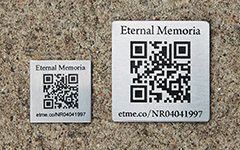Blind recruitment trial to enhance sex equality making things even worse, research reveals
Tests also show guys are used at twice the rate of women according to CVs.
Supplied: Set Up Inventory Photos
A measure directed at boosting employment that is female the workforce might actually be which makes it worse, an important research has discovered.
Key points:
- mail order wives
- Public solution leaders are increasingly being told to “hit pause” on blind recruitment studies
- The measure ended up being targeted at boosting feminine work by getting rid of indications of gender from task applications
- Professor Michael Hiscox, the educational whom oversaw the test, claims outcomes demonstrate “the contrary” and it is caution that is urging
Leaders regarding the Australian public service will today find out to “hit pause” on blind recruitment studies, which many thought would boost the quantity of feamales in senior roles.
Blind recruitment means recruiters cannot inform the sex of applicants because those details are taken from applications.
It really is regarded as an alternative solution to gender quotas and has now already been embraced by Deloitte, Ernst & younger, Victoria Police and Westpac Bank.
In a bid to eradicate sexism, huge number of general public servants have already been told to choose recruits who may have had all reference to their sex and background that is ethnic from their CVs.
The presumption behind the test is the fact that management shall hire more women once they can just only look at the expert merits of prospects.
Professor Michael Hiscox, a Harvard academic who oversaw the test, stated he had been surprised by the total outcomes and contains advised care.
“We anticipated this might have positive effect on variety — which makes it much more likely that feminine applicants and people from cultural minorities are chosen for the shortlist,” he stated.
“We discovered the contrary, that de-identifying prospects paid down the chances of females being chosen for the shortlist.”
The test discovered assigning a male title to an applicant made them 3.2 per cent less likely to want to get yourself an appointment.
Including a lady’s title to the candidate was made by a CV 2.9 % more prone to get yourself a base into the home.
“we must hit pause and start to become really wary about presenting this as a means of increasing variety, as it could have the effect that is opposite” Professor Hiscox stated.
New findings throw other studies into question
The landmark research throws question on a few studies launched by local government’s and departments that are individual.
A year ago, the Australia Bureau of Statistics doubled its percentage of feminine bosses through the use of recruitment that is blind.
Ladies in a tradesman’s globe
Professor Hiscox said he talked about the test using the ABS and failed to contemplate it a rigorous or control that is randomised, warning against any “magic product” solution.
He was also keen to point out of the service that is public a long strategy to use on sex equality, saying attention should now consider producing more versatile working conditions and training.
Men carry on to outnumber females at senior ranks associated with general general public solution, despite vastly outnumbering males in the rank-and-file degree.
“there’s been plenty of work meant to increasing variety in the general public servants plus the topics of y our test had been fairly senior,” Professor Hiscox stated.
“This project shows the status quo at present will be supportive of employing more feamales in the general public solution.”
Girls find their future in coding
Girls find their future in coding
The economy that is digital to cultivate, incorporating jobs in pc computer computer software, cybersecurity, and cloud computing each and every day. Yet, just 25 % of today’s coders are women. Emily Harburg, a Northwestern PhD pupil in tech and Social Behavior, attempted to slim this space which help girls alter their tales about coding. Her research when you look at the self-efficacy which comes from supportive learning environments made her positive concerning the chance of females to guide in technology, and her entrepreneurial spirit led her to create her research alive. In 2015, Emily co-founded Brave Initiatives with Anna Bethune, a PhD pupil in Learning Sciences, and Jen Kamins. Brave Initiatives is a non-profit that provides free coding workshops to girls from mainly low-income communities. In weeklong camps, girls figure out how to build internet sites that address social dilemmas they have been passionate about – with topics that range between closing weapon physical violence to bullying – all while becoming more confident about their abilities to shape their particular stories and operate in any industry.
Some stats about Brave Initiatives
416+ girls taught
$0 expense to pupils
86% of girls continue to code
Building up Brave at Northwestern
While developing the concept for Brave Initiatives, Harburg considered Northwestern’s resources for business owners to create it to fruition.
VentureCat
In-may, Emily pitched at VentureCat, Northwestern’s yearly student startup competition, which awards a lot more than $100,000 to student ventures. Emily’s pitch won the impact that is social non-profit category and attained her $5000.
The Storage
Emily had been welcomed by the community that is entrepreneurial The Garage, Northwestern’s hub for pupil entrepreneurship and innovation. There she networked along with other business owners and went to workshops for creating a startup that is successful.
The Garage offers a cross-disciplinary community of pupils, faculty, staff and alumni whom share a desire for entrepreneurship. The 11,000 sq ft area is presently house to roughly 60 student-founded startups per quarter.
A Supportive Community of Entrepreneurs
Northwestern encourages business owners, like Claire Lew, to make their scholarship into impact. From medical to power plus the environment, observe our community is attempting to re solve a number of the world’s many pressing challenges.



Leave A Comment